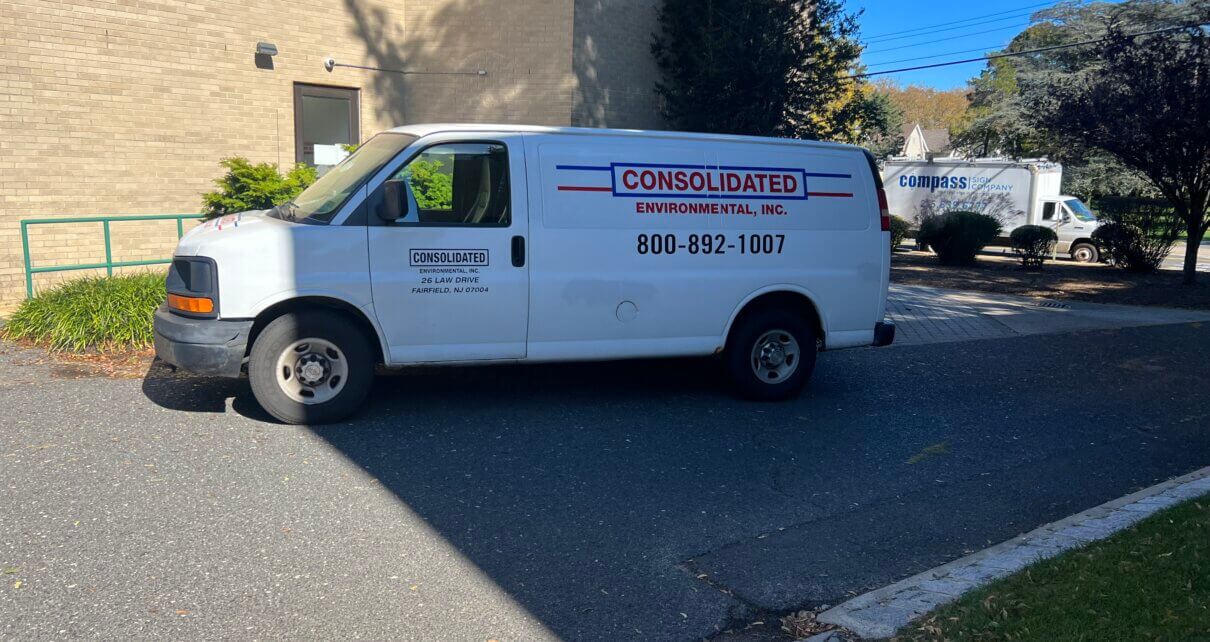Historically, Monmouth’s dormitories have had mold problems, which has in some instances affected students’ health. Patrick Leahy, President of Monmouth University, is aware of the issue and has instructed the community accordingly.
“Any time something like that is brought to our attention, we jump on it right away. Right now, all of the vents are being replaced, and we’re doing testing to see if there are, in fact, any mold problems. So far, I’m hearing good news that there are no sort of significant mold problems,” Leahy said.
Leahy added that he has heard complaints concerning mold that is appearing on vents, and he is remedying the problem by having all the vents being cleaned, and an expert is being brought in to test the air quality.
He explained, “I do know that in a couple of the residence halls, there was mold appearing on the vents, and so, we moved in right away, and we replaced all of the vents, we cleaned out the vents, and we bring in an expert to test the air quality to make sure that there’s no persistent mold problem. So far, I’m hearing good news that there isn’t.”
In Hesse Hall everyone is aware of the mold issue but it has yet to be resolved. Jason French, a sophomore software engineering student who is a resident assistant at Hesse Hall, said, “Everyone is aware of the mold at this point of the semester. Students have asked me how to handle it, and I advise them to submit a work form through facilities.”
French explained that facilities have been very slow in cleaning the mold, as he does not feel the mold in the dorms has subsided, but that facilities have fixed other issues with the building.
“Facilities have been very slow to respond to work orders when it has come to Hesse; students had many problems during the first month. Recently, they have been surprisingly more active, they have fixed a bunch of broken lights and other problems that I didn’t think would ever get resolved, but for the mold situation, I don’t think they have done anything about it,” French added.
While the residents are concerned about the mold issue in Hesse Hall, French wants residents to refrain from cleaning the mold and believe professionals should handle it.
“I understand that students are concerned about the mold on the vents. I don’t think they should clean it themselves for health and safety reasons. If the vents are to be cleaned, facilities should handle the issue because they will have the proper equipment and safety precautions,” he said.
French continued by saying that one resident is concerned about their health because black mold is in their dorm and bathroom and that they have been submitting work orders to facilities with no response.
“One of my residents is going crazy about the black mold on the vents in their dorm and bathroom and that they have been submitting work orders to facilities with no response.
“One of my residents is going crazy about the black mold on the vents in their room and bathroom; they have been submitting work orders to clean the mold with no response,” French said.
Leahy wants to avoid a continuing mold problem on campus that would create unwanted healthcare issues for residents. However, if the mold did persist, he is unsure what the next steps would be to resolve the problem, but thankfully, that issue has not occurred.
“We would not have a mold problem persist and create any health care problems for our students. I’m not sure what we would do in that case [of a persistent mold problem]. Fortunately, we haven’t had to deal with that yet, and my hope is that we won’t have to,” Leahy said.
While Leahy is taking action against the mold now, it seemed to be a problem in previous years with no resolution. Taylor Memoli, a junior english student who has lived in multiple dormitories with mold, said, “ In my freshmen year, I lived at Hesse, and it was always a running joke amongst residents that there was mold in the vents, and that is why everyone was getting extremely sick both semesters. When I heard about the mold in the vents this year in that building, I knew that residents were probably right.”
When Memoli was in Hesse, she was sick for her entire freshman year; she frequently went to the health center at Monmouth University with a sinus or respiratory infection diagnosis. She continued “My freshman year, I was sick for the entire year, and I went to the health center multiple times, each coming back with a variation of a sinus or respiratory infection. Memoli adds that in her sophomore year, she and her roommate Kristen Frawley discovered mold in their bathroom, which was never cleaned after filing a work order. “My roommates and I put in a work order form for our bathroom mold in Maplewood, and it was never cleaned/removed. It remained there for the whole year,” Memoli said.
On Monmouth University’s Unofficial Parents Facebook Page, parents have expressed their concerns about their children living in these conditions. A user by the name of Sara Jane Wendt posted pictures of the mold-covered vents in Beechwood, and expressed concern about how her daughter is allergic and if others had seen the same thing.
Another user named Kim Hurley posted a picture of green and black mold covering the vents in her dorm at Beechwood. An anonymous member posted that everyone in her daughter’s suite had been getting sick and that one of the roommates went to the Monmouth University health center for a COVID test, which returned negative.
The nurse who had given the roommate the COVID test asked if she lived in Beechwood. Once the nurse had confirmed that she was living in Beechwood, the nurse explained that her symptoms were most likely caused by exposure to mold. Her daughter then returned pictures to the parent confirming mold in her suite at Beechwood.
Kathy Maloney, Director for the health center at Monmouth University, said, “Mold is an environmental allergen and for people who are allergic to dust or have asthma it is indistinguishable from other similar environmental allergens.” She goes on to say that viruses usually run their course in two weeks but if someone is still sick after a month they most likely are allergic to something. “Say I’m congested in my room viruses run their course in two weeks but it it persists for more than a month then you might be allergic to an environmental allergen which can range from mold, mildew, pollen, ragweed, leaves falling from leaves even to wet leaves on the ground,” Maloney explained.
She continues by saying how during the winter people react to indoor allergens more than outdoor allergies because of people being inside more and the ground freezing. “During the winter people react to indoor allergens rather than outdoor allergens because the ground freezes and people are generally indoors more,” Maloney said.
Maloney suggests that when students go on break try to pay attention to if you feel better at home and when you return to campus if your symptoms become worse but that can vary depending on where you live. She explained “What I say to folks who go home on break, do your symptoms get better when you go home and when you return do they get worse? However, that can be different in some cases; let’s say home is Maryland you could be allergic to different environmental allergens there then you are here.”
Maloney continued by saying that dust and dust mites can get trapped in vents and filters which is why vents should be changed regularly and that people should also keep their rooms clean.
She said, “At home dust and dust mites can get trapped in vents and filters that is why they should be changed frequently, even cleaning our room can help get rid of environmental allergens.
“Regarding possible mold in the residence halls, extensive testing has already taken place, and it continues in all of the residence halls, even those that have not shown any visible signs. So far, there have been no reports of major damage. Any visible mold has been remediated at this point, but testing continues to ensure no health challenges for our students,” Leahy concluded.



